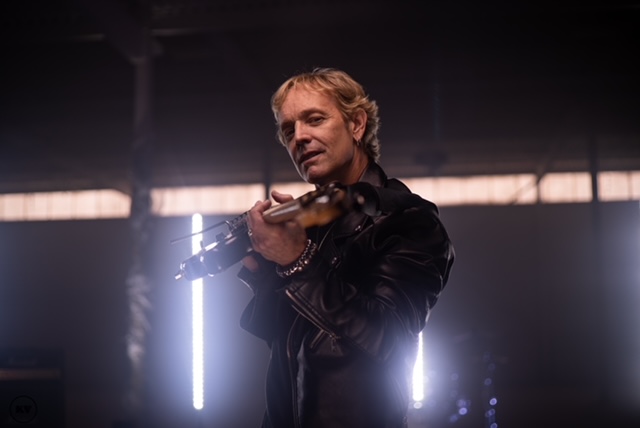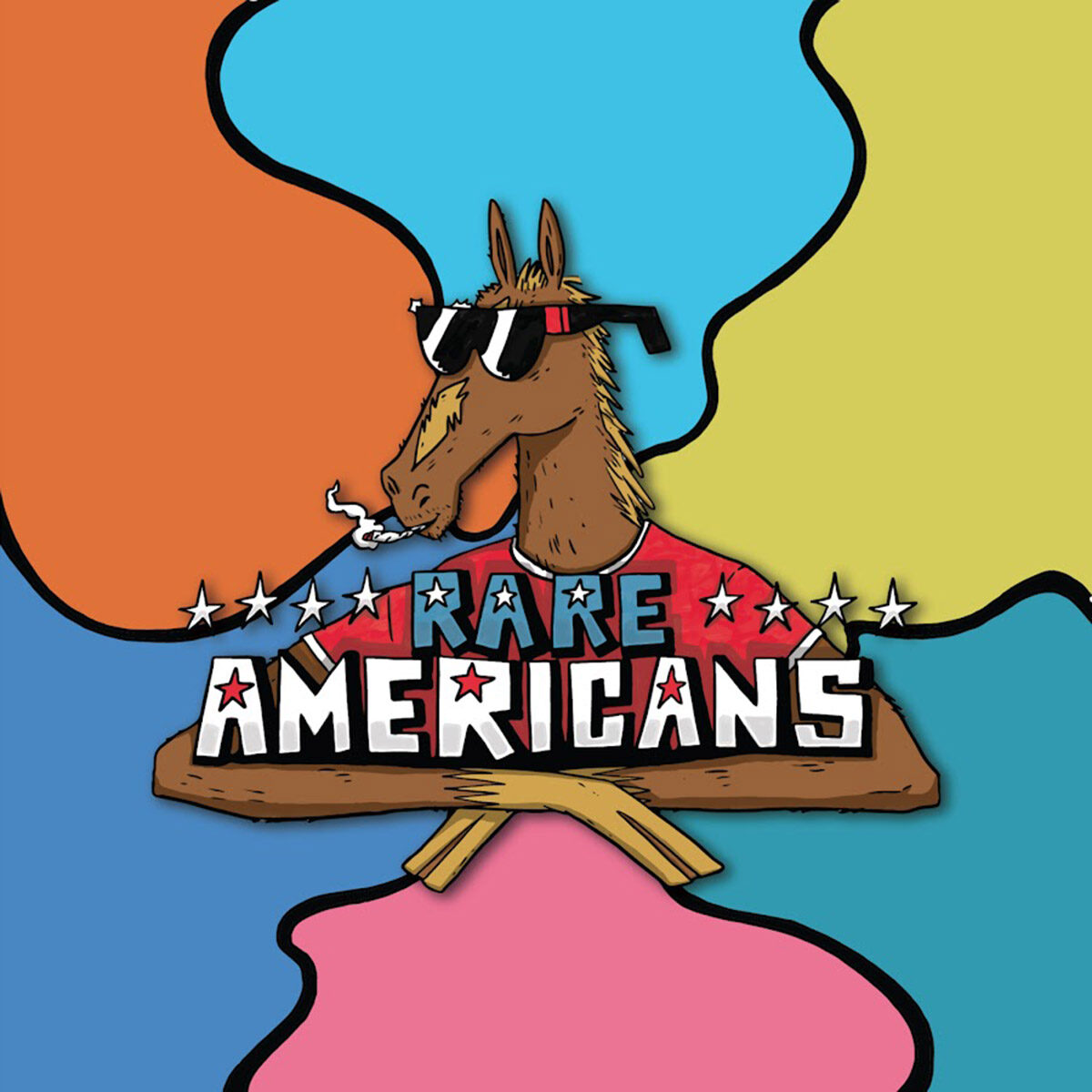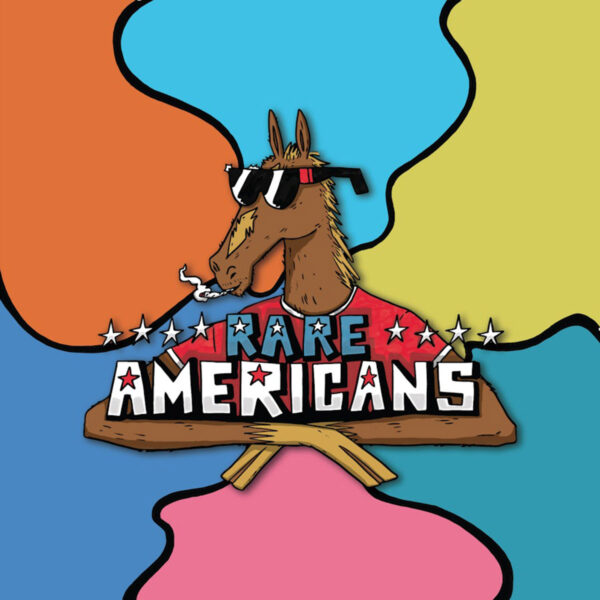Photo: Jeanine Leech
Triumph fans will recognize Rik Emmett as the spandex-wearing guitar virtuoso who wrote and sang some of the Toronto-based trio’s biggest hits, “Lay It On The Line, “Magic Power” and “Hold On”.
Yet, as detailed in is autobiography titled ‘Lay It On The Line (ECW Press), Emmett’s career in Triumph represents only part of his illustrious career and only takes up one chapter in the 14 chapters of his book.
You might be interested to know that even though Emmett recorded 10 studio albums with band mates Gil Moore (drums) and Mike Levine (bass) between 1976 and 1987, he has recorded 19 albums as a solo artist and with other collaborations between 1990 and his last release; ‘Folk Songs For The Farewell Bonfire’ in 2020.
A noted teacher, author as well as a respected classical guitarist, ‘Lay It On The Line’ tells the complete story of his family roots, his childhood, his early bands and of course his period as co-lead vocalist/lead guitarist of one of Canada’s prime musical exports.
But as important, the book delves into his personal philosophies on such wide-ranging topics as songwriting, guitar techniques, an inside look at the life of a musician and his observations on the music industry in general and it’s future social-media evolution.
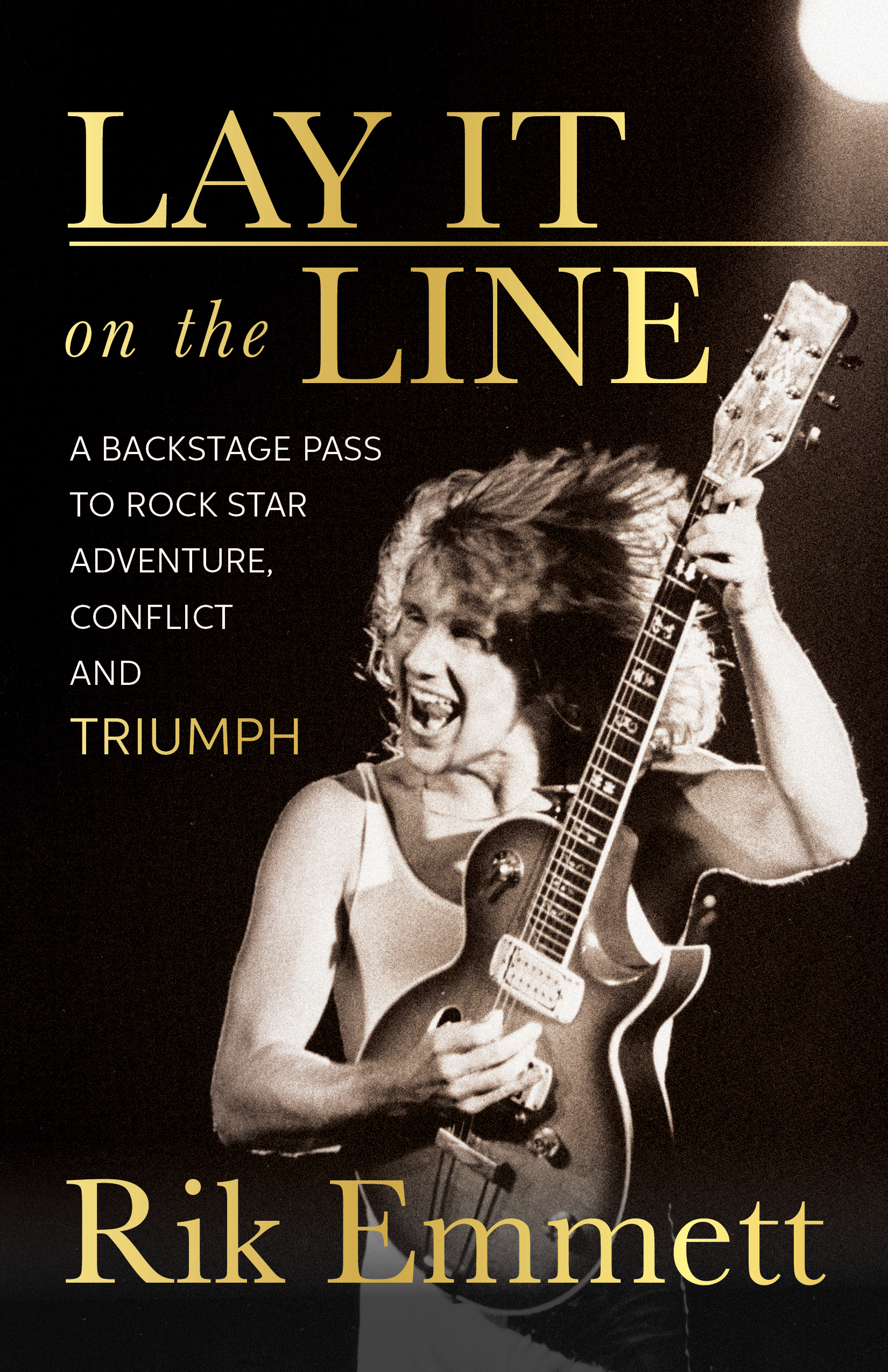
Of course, Triumph fans will be most interested in stories of the band’s heady success in the early 1980’s, it’s struggles to maintain that success and the specific reasons Emmett left the band in 1988 after the release of their “Surveillance album.
“Writing this book was not just a cathartic experience, it was like I closed a door, I had ended a chapter and now I was ready to start a new one,” explained Emmett over the phone from his Toronto area residence. “Now I’m relieved of that burden and I can focus on Act 3, the final act of things.”
“It was interesting for me to generate that perspective, he added. “Triumph fans (especially those in the U.S) will be saying ‘jeez I only thought of Emmett as this guy in spandex pants, jumping around in the 80’s.
A few words come to mind when reading Emmett’s tome, one key word being “compromise”. Ever since Moore and Levine scouted Emmett out whilst he was performing in his previous band; Act 3. when this band were performing at Toronto’s Hollywood Tavern, he found himself in a compromise situation with the other two band members.

“When I joined Triumph, I was like the junior partner, Gil and Mike knew the business much better than I did,” Emmett noted. Mike really knew the record business and all about promotion and Gil knew the business of general managing a band from the road managing perspective. He knew about production, cutting deals with booking agencies and all of that stuff. My role became ‘well we want you to write songs, jump around on stage and front the band.”
“So, I was the one who said; ‘if we are going to be called Triumph, why aren’t we writing songs about self empowerment, and motivational things, let’s build that as a bond. I was the creative one who came up with the logos, designed the album jackets. It was me who labeled our recording studios, ‘Metalworks’ so I think I would have been just as happy working for an ad agency. I also loved the constant creative element of teaching; I like creativity on a lot of levels.”
It was that desire to be creative which ultimately led to Emmett leaving Triumph in 1988. “I had to get out of Triumph because the band was too limiting,” Emmett conceded. After awhile it’s like damned the torpedoes and damned the financial statements. At a certain point, it’s not about money, it’s about what is going to make you happy. You only get one life and I wanted to make life choices that were outside of the box that Triumph had. I had people ask me how I could walk away from the spotlight and the pay cheques, well they were nice, but they weren’t everything.”
Since their big break through in February 1977 when the band was invited down to San Antonio Texas to fill a last-minute spot replacing Sammy Hagar at a concert sponsored by KMAC-KISS FM (which generated key U.S airplay for their 1976 debut album) and then on August 26th 1978, headlining the Canada Jam festival at Bowmanville’s Mosport Park before 110,000 fans, Triumph’s career was off and running.
Although it was Moore’s vocals on their cover of Joe Walsh’s “Rocky Mountain Way” which proved to be triumph’s break-out single off their second album ‘Rock And Roll Machine in 1977, it was Emmett’s writing contributions on future albums which led to monster concert performances in the U.S and major U.S airplay for tracks like “Lay It On The Line” “Magic Power “Hold On”,
Through the early 80’s Triumph enjoyed major recording success with RCA, releasing Just A Game in 1979, Progressions Of Power in 1980 and Allied Forces and utilizing their pyrotechnic bombastic live show complete with fire pots and monster illuminated sighs to win over huge stadium crowds including a memorable concert at the U.S festival May 29th 1983, sponsored by Apple co-founded Steve Wosniak where they shared the bill with the likes of Ozzy Osboune, Judas Priest, Motley Crue and Van Halen.
Yet things began to sour in the Triumph camp. A falling out with RCA led to a new deal with MCA (which also meant that the band assumed a three-million-dollar debt) and there were further financial problems when the band turned down a multi-million-dollar (non-recoupable) merchandise offer from Virgin for their ‘Sport Of Kings’ tour and instead accept another offer that was recoupable. When the subsequent tour did no fair well at the box office, the band was forced to repay a lion’s share of their merchandise losses.
“With those two decisions which resulted from a 2-1 band vote, I was thinking, wait, am I going to keep losing all of these important decisions. There are tremendous consequences as a result of these decisions being made, that was the writing on the wall. If you are going to keep freezing me out, this is no longer the place for me.”
A not-so-friendly relationship with producer Ron Nevison, who was parachuted into the band’s Sport Of Kings session by MCA Records, forced Emmett to reconsider his creativity options and things came to a head when the label sent it West Coast A&R rep Thom Trumbo to work with the band on their contractual obligation record `Surveillance’.
Despite Emmett writing the lyrics to one track called “Rock You Down”, Trumbo assigned the vocal duties to Moore, and, without Emmett’s consultation, the lyrics had been re-written for the track’s final master. Insulted that his creativity and work ethic had been compromised, he finally pulled the plug on the band, performing his final show with the band September 3rd, 1988, at Canada’s Wonderland.
“The whole relationship between me and both Mike and Gil were about compromise, they compromised with me as much as I did with them. But we got to a point where they were not prepared to compromise and I said, ‘sorry but this collaboration is no longer going to function.”
So, Emmett, Moore and Levine split up, Emmett to carry on recording a series of solo and collaboration works with various performers, producing a total of 19 releases while the rest of the band teamed up with Phil X (now Bon Jovi’s guitarist) to record Edge Of Excess in 1992 before wrapping up the band with Moore focusing his energies into running a highly-successful sound production company and teaching facility at his Metalworks Studio.
Honors such as induction into Canada’s Music Hall Of Fame in 2008 and Canada’s Walk Of Fame in November 2019 were bestowed upon the band and they reformed for two concerts in 2008, one festival performance in Solvesborg Sweden June 7th and a show July 11 titled Rocklahoma in Pryor Oklahoma.
“I think we did the Oklahoma show because Gil wanted to show his kids what he had been doing for a living, but there were some health issues and he did not want to disrupt his studio business, and despite a number of lucrative offers from Live Nation, none of us were up for touring again.” The end result being a DVD release of their Swedish concert.
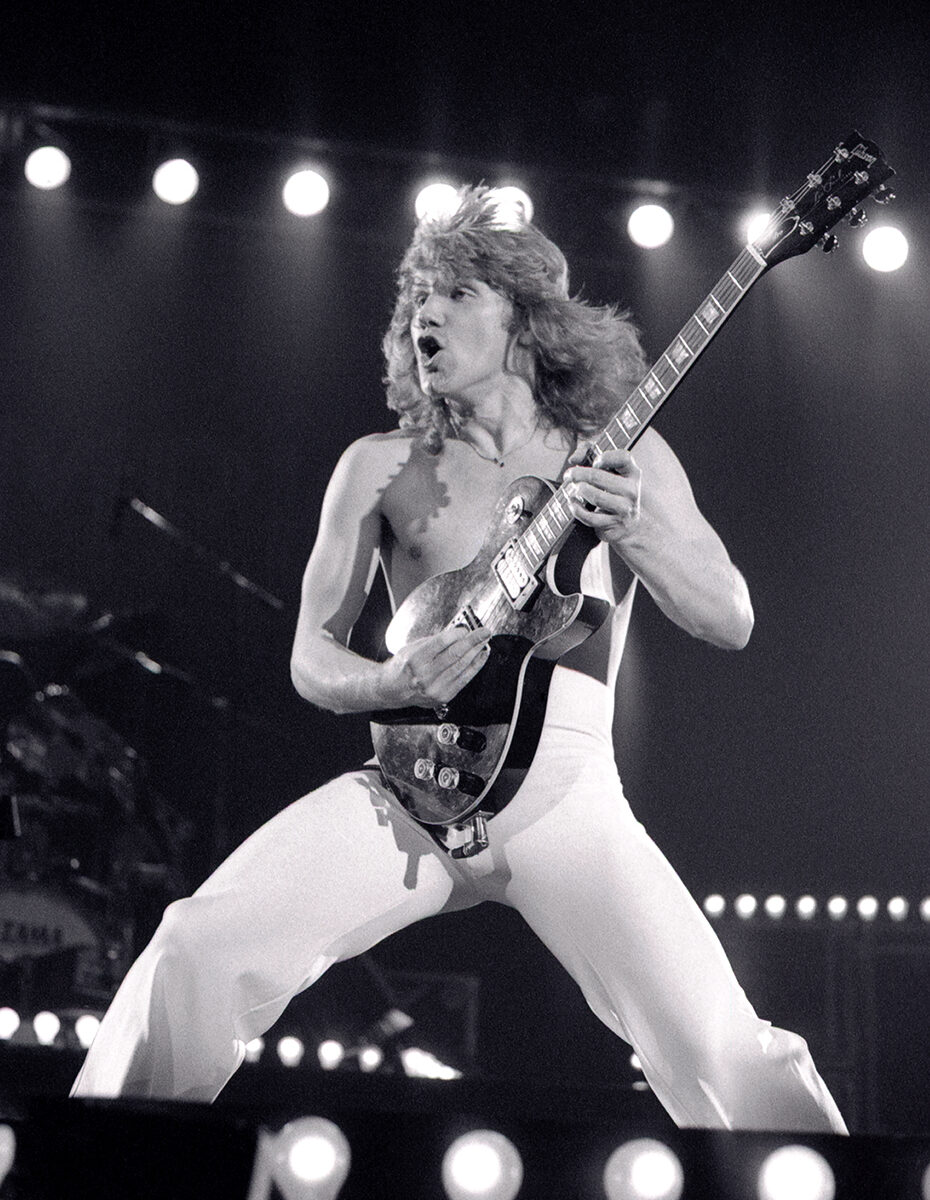
So, during the COVID epidemic, many bands reviewed their legacy but according to Emmett, Triumph’s legacy is complete and does not need embellishing.
“Banger Films released a documentary titled “Triumph: The Rock And Roll Machine (which told our story over 45 years), which was quite an achievement considering that we didn’t talk to each other for 20 years. Collaborating together took a lot of soul searching on how it was going to play out. But producers Sam Dunn and Mark Ricciardelli approached it from a fan’s perspective, we had old video footage from MuchMusic and the U.S Festival and they filled in the gaps with some clever animation.”
The highlight of the film being a Fan Fair event for 300 super fans November 16th, 2019, staged at Metalworks that culminated with band surprising their audience with a three-song set comprising of “When The Lights Go Down”, “Lay It On The Line” and “Magic Power”. The documentary was later shown at the Toronto International Film Festival September 10th, 2021.
And so, with the release of Lay It On The Line, Emmett feels the legacy of Triumph has been completed – but he is still busy being creative.
“I used COVID to complete writing my book and writing a book of poetry,” Emmett announced, “I have composed 10 finger-style guitar pieces so I might write a novel featuring stories about each guitar piece – I kind of like this writing thing, I think I’m pretty good at it.”

